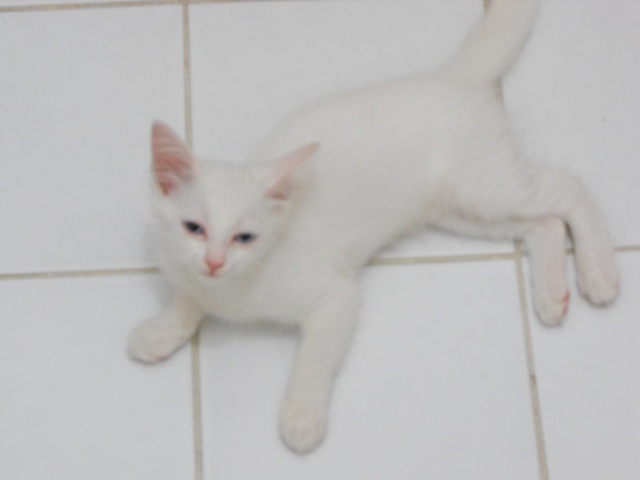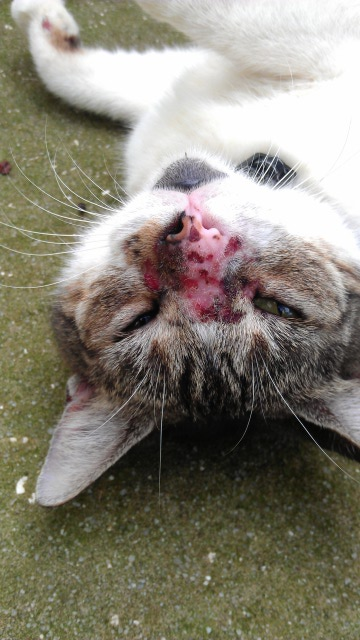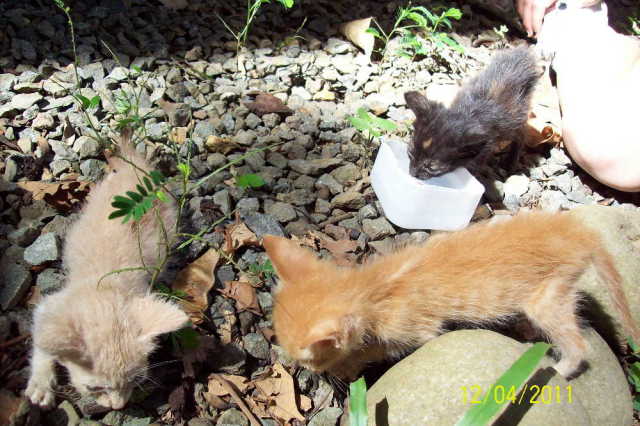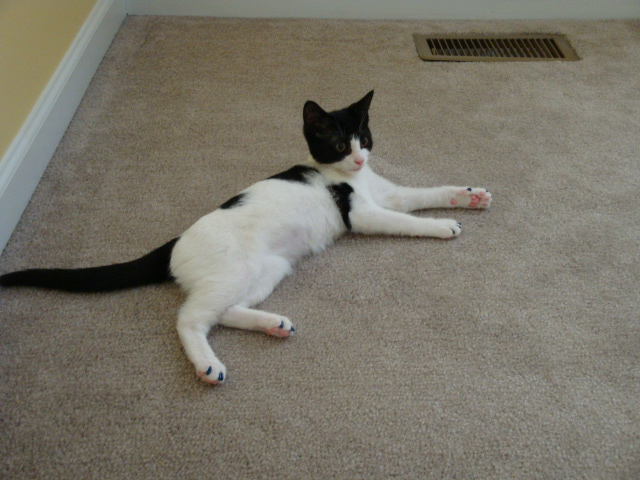QuestionHi Jessica, i have a cat that just gave birth, 4 live kittens and one undeveloped one that i guess might be considered a miscarriage. the first two live kittens did not make it but the last two seem to be doing ok. My question is, i know in humans that it takes 2 or 3 days for the breastmilk to come in, and i was wondering if there were any similarities when a cat gives birth. The mother cat doesn't seem to have any milk although the kittens look like they are nursing i can't tell if they are getting anything.
I bought some KMR and a feeder bottle just in case but i don't know if they need it or not. The labor and delivery was not easy for the mother and she seems very restless and easily distracted. I keep putting her back in the box w/ the babies but she doesn't stay very long. I don't know what else to do and i can't afford a visit to the vet. Please respond as soon as you can i would appreciate it greatly. Thank you for your time.
AnswerHi Heather.
For the first 48 hours after birth, a queen doesn't produce true milk, but she DOES produce a milky substance called colostrum. This helps nourish the kittens and is high in antibodies to help protect the newborns from disease. If you are not able to squeeze a whitish substance from the teats by gently pulling them, your kitty is not producing this, and the kittens will die unless you find a foster mother (another lactating queen) or you hand-nurse them with the bottle and KMR you bought.
If there's any possible way to get them to the vet, please do so. It sounds likely to me that your kitty may be ill, which is why she may have had three of the 5 babies die. This is an abnormally high ratio of deaths in one litter. Diseases like feline leukemia, feline AIDS and distemper are very often the cause of such high death rates in fetuses and newborns. The fact that she's not lactating may also signal illness or malnutrition. So she and the kittens really need attention. I'd be worried that these unfortunate circumstances are a symptom of a larger problem.
If the mama is found healthy enough to nurse the kittens, the vet may give her an injection Pitocin to encourage milk let-down.
I'm attaching an article of mine to help if you decide to try hand-nursing.
When kittens need to be nursed by hand, they'll need a special bottle and special kitten formula, available through vets or pet stores. The instructions on the bottle suggest to burn a hole in the nipple with a hot needle. However, I find that this does not make a large enough hole, so I cut a small "x" at the tip of the nipple with scissors (sanitized with alcohol). Just make sure it's not too big. The kittens' lungs can be flooded if milk flows out too fast. It's better to make the hole a little too small and apply some pressure to the bottle when feeding to make milk flow out easily but not too fast.
I recommend the powdered kitten formula, which you will refrigerate and reconstitute with water as needed. The brand I prefer is KMR. Add warm water as per the instructions (if you choose to use the powder), or heat formula up in the microwave, or by submersing the bottle in hot water, until a drop is just slightly warm on your wrist. Never heat the formula more than once. Discard any unused portion.
The kitten will need to be fed every two hours, day and night, for the first couple weeks. At just a week old, he should eat 5-10 cc's of formula each feeding, and this will increase as his weight increases. I find it typically increases about 10 cc's per feeding every week. Feed him as much as he wants, but don't force more than the recommended feeding, or digestion may be interfered with.
To feed, the kitten should always be stomach down, and he should be fed at such an angle that his head is slightly raised. NEVER feed a kitten lying on his back. He could choke. I burp the kittens half-way through their meal by placing them on my shoulder and patting their backs gently. After meals, they also get their belly rubbed gently in a circular motion to aid in digestion.
You need to keep him warm by placing him in a small box (cat carrier works great), with a heating pad set on low-medium head, covered with a blanket. If kittens chill, they usually die, so this is THE most important thing you need to do. However, if you see the kitten panting, or if he is overly active or crying, you are probably overheating him and you should lower the heat.
You will also need to stimulate him to go to the bathroom after each feeding. You dampen a cotton ball or cloth with warm water, and then rub the genital areas with it gently in a circular motion. The kitten should urinate every time, and defecate once or twice a day. If the kitten doesn't defecate for more than 24 hours, he needs to see a vet immediately. Sometimes formula causes constipation.
It's very important to weigh the kitten daily with an ounce scale to make sure he's gaining weight. A mail scale does just fine. He should gain 1/4 to 1/2 ounce every day. If he stops gaining weight or ever loses weight, he needs to see a vet immediately to save his life.
Kittens usually begin experimenting with kitten food around 4 weeks old and can be weaned off the bottle at about 6 weeks in most cases. I allow my kittens to bottle feed as long as they show interest, until 10 weeks, unless they experience diarrhea. I recommend to feed them only canned food until they are at least 12 weeks. Their kitten teeth can't crush dry food and they can choke.

 cat disappeared
Question
pusscat at home
My cat came to me at 6 months
cat disappeared
Question
pusscat at home
My cat came to me at 6 months
 Kitten breed
Question
Minnoo
Dear Sir,
I brought home a female kitte
Kitten breed
Question
Minnoo
Dear Sir,
I brought home a female kitte
 Cat nose
QuestionCat
QUESTION: There is a stray cat in o
Cat nose
QuestionCat
QUESTION: There is a stray cat in o
 Orphaned baby kittens in the rainforest
Question
kittens
Hello,
My wife and I are volunteers in
Orphaned baby kittens in the rainforest
Question
kittens
Hello,
My wife and I are volunteers in
 Cat training/Runs away whenever downstairs
Question
Kairi in her room
Hi there!
I recently
Cat training/Runs away whenever downstairs
Question
Kairi in her room
Hi there!
I recently